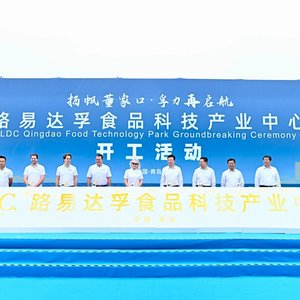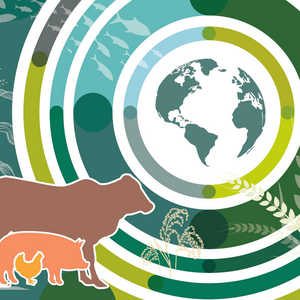WWF Global Standards for Responsible Shrimp Aquaculture enters last public comment period for draft standards
The final step in the process of creating global standards for shrimp farming began today, when the World Wildlife Fund's Shrimp Aquaculture Dialogue (ShAD) kicked off the last public comment period for the draft standards.
The final standards will address the key environmental and social impacts associated with shrimp farming, an industry that now accounts for one-half of the shrimp eaten globally. WWF said impacts from the industry include water pollution, disease outbreaks, clearing of mangrove forests and disruptions of community livelihoods.
“It is very important that the entire shrimp aquaculture industry, including retailers, farmers and scientists continue to be involved with the development of the standards for responsible shrimp aquaculture so that they can be the most credible ones in the marketplace, and I strongly encourage all industry players to submit their comments” stated Dialogue Global Steering Committee (GSC) member Dominique Gautier of Aqua Star.
Feedback received during the 60-day public comment period will be used by the ShAD’s 14-person GSC to finalize the standards in the first or second quarter of 2011. The standards-development process began in 2007 and has included more than 400 producers, conservationists, government officials, academics and other shrimp farming stakeholders.
Significant changes have been made to the ShAD standards as a result of the input received during and after the first public comment period, which also included one full stakeholder meeting in Jakarta, Indonesia and two additional GSC meetings (Washington, DC and Paris, France). The standards related to the location of shrimp farms have been changed so they are more effective in promoting a responsible aquaculture that is in harmony with both the environment and the people living in the communities located near the farms.
“Stakeholders involved in the process have worked very hard to make changes since the first draft of the ShAD standards was released in March 2010,” said Corey Peet, who coordinates the Dialogue for World Wildlife Fund (WWF). “Continuing to tap into the experiences and expertise of this broad and diverse group of people is making the standards more robust. I am confident that the dedication and hard work of those involved will result in standards that will help transform the shrimp farming industry.”
The process used by the ShAD and the seven other Aquaculture Dialogues coordinated by WWF is the only one for aquaculture standard-setting that seeks to be in compliance with the International Social and Environmental Accreditation and Labeling Alliance’s guidelines for creating environmental and social standards.
“The development of robust standards and certification schemes that can help consumers and businesses make more informed and better choices, and also inspire producers to improve their practices, is becoming essential in our increasingly complex global farmed seafood industries,” said GSC member Peter Bridson of the Monterey Bay Aquarium’s Seafood Watch Program.
The standards will also be performance-based and, as much as possible, metrics-based, thereby encouraging innovation at the farm level.
The ShAD standards will be given to the Aquaculture Stewardship Council (ASC) to manage when that entity is in operation. WWF is helping to create the ASC, which will be responsible for working with independent, third party entities to certify farms that are in compliance with the standards being created by participants of the Aquaculture Dialogues.










